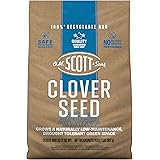Permade Galvanized Raised Garden Bed- 2Pcs 2x2x1FT Metal Planter Boxes Outdoor | Round Steel Raised Bed Kit & Fire Pit Ring for Gardening with Protective Tape, Gloves for Vegetables, Flower (Sliver)
$40.99 (as of 14:24 GMT -05:00 - More info)VNRFEIU 1 Pack Raised Garden Beds Outdoor, Galvanized Metal Raised Garden Bed with Trellis, 23.6x23.6x60in Tomato Cages for Garden Planters Box with Trellis for Climbing Plants Vegetable Vine Flowers
36% OffComposting is a great way to reduce waste and create nutrient-rich soil for your garden. It’s also an eco-friendly activity that can help you save money on fertilizers and pesticides. If you’re new to composting, starting your own compost pile may seem daunting, but it’s actually quite simple. In this guide, we’ll walk you through everything you need to know to get started with home composting.

What Is Composting?
Composting is the process of breaking down organic matter into a rich, nutritious soil amendment called humus. This happens naturally in nature as leaves, twigs, and other plant material decompose, but you can speed up the process by creating the right conditions for microorganisms like bacteria and fungi to thrive. By composting at home, you can divert food scraps and yard waste from landfills and turn them into a valuable resource for your garden.
The Basics of Starting Your Own Compost Pile
To start composting at home, you’ll need three things: brown materials (like dried leaves or shredded paper), green materials (like fresh grass clippings or fruit and vegetable scraps), and water. You can also add manure, coffee grounds, or eggshells to boost the nutrient content of your compost. Here are the basic steps to follow:
1. Choose a location for your compost pile. Ideally, it should be in a sunny spot with good airflow, away from trees or buildings that could block the wind.
2. Create a base for your pile using brown materials like straw, shredded newspaper, or cardboard. This will help absorb moisture and provide aeration for the microorganisms in your compost.
3. Add a layer of green materials on top of the brown base. This can include food scraps, grass clippings, or other fresh plant material.
4. Sprinkle a handful of soil over each layer. The soil contains beneficial microbes that will help break down the organic matter.
5. Water your compost pile thoroughly until it feels damp to the touch. Be careful not to overwater, as too much moisture can lead to mold growth.
6. Repeat layers of browns, greens, and soil until you have a pile about 3 feet high and 3 feet wide.
Tips for Maintaining a Healthy Compost Pile
Once you’ve built your compost pile, there are several tips you can follow to keep it healthy and productive:
1. Turn your compost pile regularly. This helps mix in oxygen and distribute moisture evenly throughout the pile.
2. Keep your compost pile moist but not soggy. Too little moisture can slow down decomposition, while too much can promote mold growth.
3. Chop or shred your materials before adding them to the pile. This exposes more surface area for microorganisms to work on and speeds up the decomposing process.
4. Avoid adding meat, fish, or dairy products to your compost pile. These can attract pests and cause odors.
Troubleshooting Common Composting Problems
If you encounter any problems during the composting process, here are some common solutions:
1. Odors – If your compost pile smells bad, it may be too wet or lack enough airflow. Try turning the pile more frequently or adding more brown materials to balance out the moisture levels.
2. Pests – Rodents or insects may be attracted to your compost pile if it contains meat or sweet foods. Remove these items and consider building a fence around your pile to keep animals out.
3. Slow decomposition – If your compost pile isn’t breaking down quickly enough, try chopping or shredding your materials more finely, adding more brown materials, or adjusting the moisture level.
How to Use Your Homemade Compost in the Garden
Once your compost has fully broken down and turned into dark, crumbly humus, you can use it in your garden to improve soil health and boost plant growth. Here are some ways to incorporate homemade compost into your garden:
1. Mix it into the soil when planting new plants or seedlings.
2. Spread a thin layer of compost on top of your garden beds as a mulch.
3. Make a compost tea by steeping compost in water and using it as a foliar spray to feed plants directly.
By composting at home, you can reduce waste, save money, and create a valuable resource for your garden. With these tips, you’ll be well on your way to becoming a successful home composter!
Related Content
- Climate in Crisis: Benefits of Composting
- How and where to compost in Brooklyn
- 110 IN THE SHADE: The beneficial cycle, or I’ve seen that banana peel before – Imperial Valley Press
- Compost bins that are perfect for small spaces – Yahoo News
- Waste Not, Want Not: MCLA Composting Program Launches This Fall – The Beacon – MCLA















































